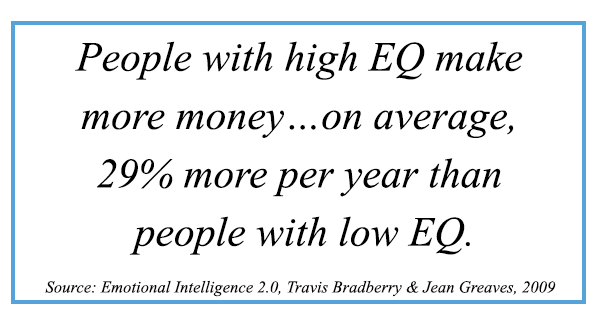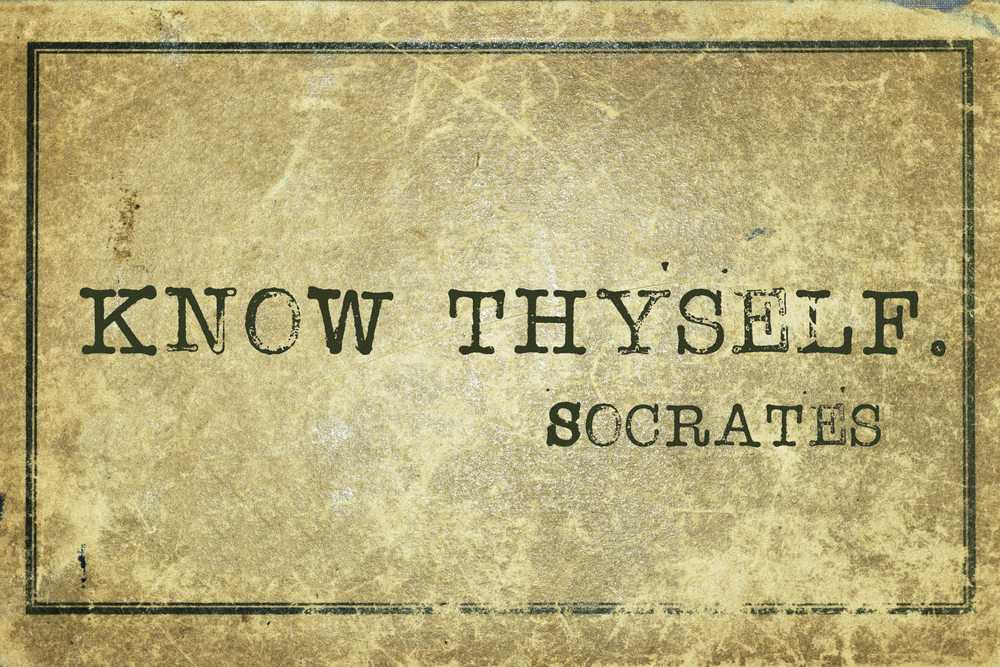- Have you ever felt impatient and annoyed with a person sauntering in late to a meeting you’re running?
- Have you ever fantasized about something unpleasant happening to a co-worker who has a way of taking all the credit?
- Have you ever raised your voice in order to be heard in a conference room filled with a lot of opinions? Or, are you more likely to withdraw in that setting?
- Have you ever felt insignificant when the email you painstakingly crafted, to strike just the right tone, falls on deaf ears?
- Have you ever felt frustrated from way too much to do and too little time to get it done?
If you said “yes” to any of these questions, congratulations, human-being!
The more I work with leaders, the more I see that leadership has less to do with intellectual brilliance (assuming table stakes are met) and everything to do with emotional intelligence (or EQ, for short). In fact, I’ll go out on a limb here and claim that EQ is a key differentiator for successful leaders.
In a nutshell, those with high EQ tend to be self-aware and are able to manage themselves and their relationships. The beauty is that, unlike IQ, which is innate, EQ can be learned and developed.
As I know our time together is short, let’s focus on what self-awareness looks like (saving the other aspects of EQ for future blogs). Highly self-aware leaders can identify:
… their feeling(s) in the moment (“I’m really ticked off!”)
… their tendencies and triggers (“I hate to be interrupted.”)
… what motivates and derails them (“Starting a new project really gets me excited.”)
… what they want and when (“I’d like to be VP within the next two years).”
… their strengths, weaknesses, opportunities and threats (“…I’m easily distracted….”)
… what they value (“work:life balance…”)
How does one cultivate self-awareness?
- Get feedback through a 360 assessment in which your direct reports, peers and managers weigh in on how they feel about the experience of working with you — both favorable and not so favorable (your blind spots).
- Complete a SWOT analysis to identify your leadership strengths, weaknesses, opportunities and threats.
- Exercise curiosity and ask for feedback from those you trust and respect.
- Carve out time for reflection on a daily basis. Ten minutes in the morning and ten minutes before you wind down the day gives you space to identify what went well and what you’d like to do differently.
- Listen to your “self-talk,” and identify ways to allay negative thoughts which do not serve you.
While plenty of people navigate successfully up the corporate ladder and achieve their goals, not all of them are leading in a way that inspires or contributes to a healthy, sustainable organization. Building your EQ muscle is one of the most effective ways to magnify your leadership contribution and makes for a more fulfilling experience…for you and those around you.
Share This Post:
Great post Jacqueline. Encouraging reinforcement of the importance of self-awareness — not only introspectively, but also in managing or interfacing with others.